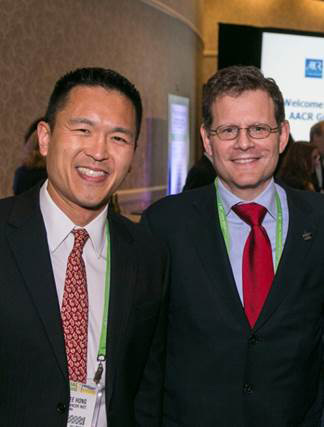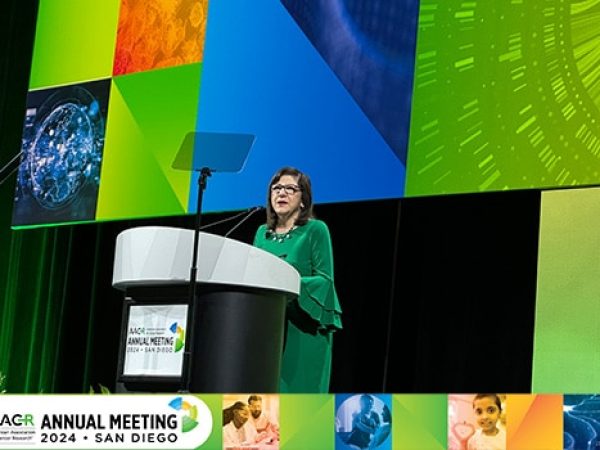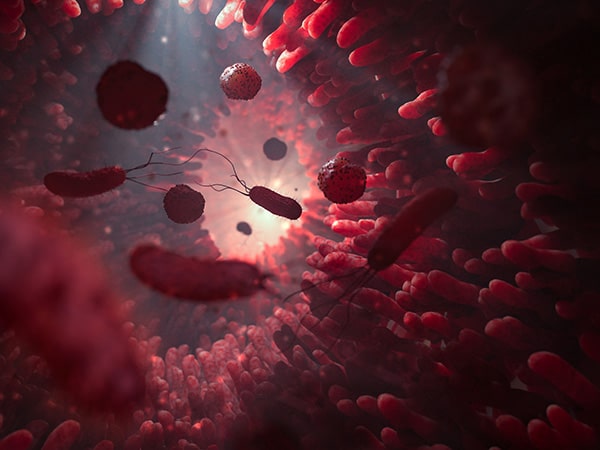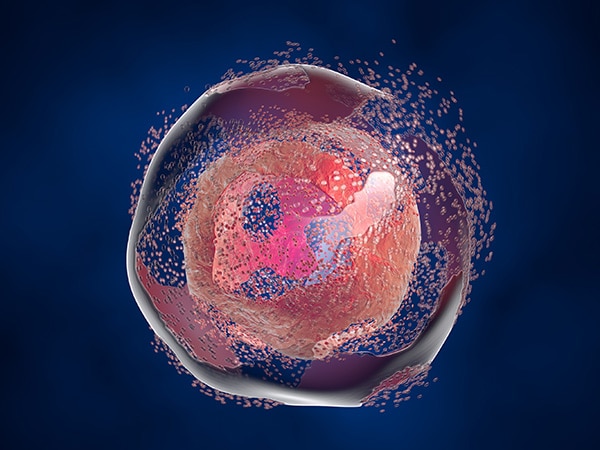Learning From the Patient in a “Bedside-To-Bench” Approach to Cancer Research
Bladder cancer is the fifth most common cancer in the United States, predominantly affecting men in the later decades of life. However, this disease can also arise as a secondary form of cancer in children. Pediatric bladder cancer is considered a rare pediatric cancer, and sometimes arises as a result of chemotherapy received to treat a previous malignancy, such as non-Hodgkin’s lymphoma. As such, resources are limited in understanding how to best treat patients presenting with this form of cancer. Andrew L. Hong, MD, an instructor in pediatrics at Harvard Medical School and Dana-Farber Cancer Institute, is hoping to change this. His research, funded by the 2014 AACR-Conquer Cancer Foundation of ASCO Young Investigator Translational Cancer Research Award, is designed to answer many questions related to the underlying biology that contributes to the development of bladder cancer.

Hong, left, with Clifford A. Hudis, MD, a past-president of ASCO (2013-2014) and vice president for government relations, chief advocacy officer, and chief of the breast medicine service at Memorial Sloan Kettering Cancer Center.
Hong’s interest in cancer research began very early in his career, as an undergraduate student at the University of Chicago. “I was exposed to several courses that piqued my interest, from general biomedical sciences to cancer research,” says Hong. There was one course in particular that really reinforced Hong’s passion to enter the field of cancer research. “A course taught by Marsha R. Rosner, PhD,” Hong recalls, “gave me a glimpse into the exciting field of cancer research and set me on a path to pursue this as a career.” In addition to Rosner, Hong also credits important laboratory experiences with Munira A. Basrai, PhD, Olufunmilayo I. Olopade, MD, FACP, Frederick W. Alt, PhD, and William C. Hahn, MD, PhD – with whom Hong is currently conducting his research – for fueling his drive to study cancer.
Hong entered Hahn’s lab in 2012 with an interest in studying cancers that are understudied and underfunded. “For kids with cancer who receive a significant amount of cyclophosphamide, they are at high risk for secondary bladder cancer,” says Hong. “Unfortunately our treatments have been limited in children as these are rare events and when we look to the adult literature, outcomes for bladder cancer have been limited.” However, the stars seemed to align for Hong when he entered Hahn’s lab, as Hahn and a collaborator had recently identified a region of amplification which may play a role in the aggressiveness of bladder cancer. “When I joined his lab, this project was ready to move from the computational biologists’ hands to the bench. It was quite good timing as we were able to align my interests with this project,” Hong recalls.
As a physician-scientist, Hong is able to apply a unique perspective to the project, in a sense reversing the traditional “bench-to-bedside” approach. He and his colleagues are taking the clinical associations they observe in patients back to the lab to inform their research. “The ‘bedside-to-bench’ approach is critical as we need to find therapies that will help our patients. The basic sciences are critical for elucidating new biology, but how do we take that knowledge to the patient?” Hong says. “By going from the bedside to bench, we can harness our knowledge about how a cancer is working in a patient and then merge this with knowledge from the basic sciences in the hopes that we can understand enough to return that knowledge back to the bedside in the form of new therapies or repurposing currently available therapies.”
When asked about how his role as a clinician impacts his approach to research, Hong discusses his motivation to improve the lives of his patients by improving the way their cancers are treated. “While in clinic or as the attending on our inpatient service, we see the harsh realities of what ‘cure’ means and how we achieve it,” Hong says. “Administering very strong multi-agent chemotherapy regimens carries along short- and long-term side effects. My motivation is that we can do better and must do better.”
Hong notes that important strides have been made for many cancers; however, he asserts, “these significant improvements should become a reality across all types of cancer. And for those cancers where we have made significant strides, we need to think about late effects to provide a good quality of life to these patients.” To achieve this, Hong advocates for the importance of biomedical research. “We need to understand the underlying biology responsible for tumor development, as well as look for new ways to target these cancers,” he says. “To do that, we need to go back to the lab.”
Hong’s AACR-CCF of ASCO fellowship ended in June, but he attributes the funding to enhancing his career development. “Especially at a vulnerable time in my career, this grant has helped provide confidence in my passion to study cancer, particularly those cancers which we need to make more progress in.” Going forward, Hong plans to continue his research with the ultimate goal of running his own laboratory, maintaining his sights on the best interests of his patients: “I would like to continue to focus on questions that harness the amazing biology we are learning in the basic sciences with the biology that we are seeing in our patients.”



